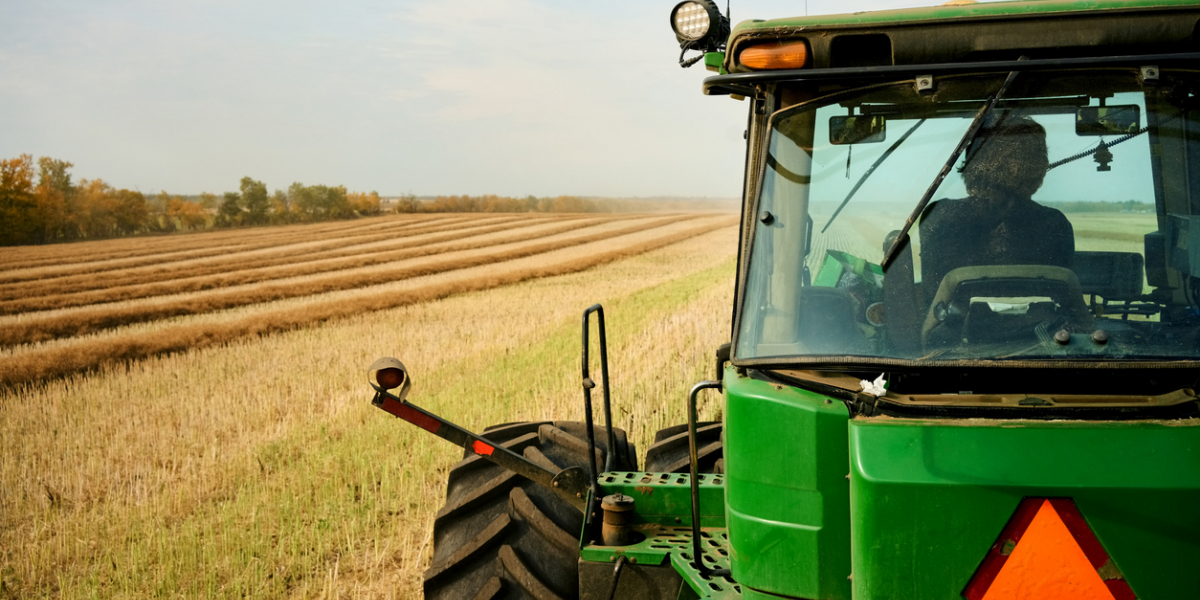
November 19, 2025
By Olivia Richardson and Ryan Tougas-Cooke
Earlier this fall, the Food Leadership Summit in Calgary, Alb. brought together farmers, policymakers, researchers and industry leaders from across Canada to talk about one big goal: building a more competitive, secure and resilient food system.
Hosted by GLOBE Series, the Summit focused on collaboration—how different parts of the agriculture and food value chain can work together to strengthen Canada’s global advantage. As members of SPI’s Sustainable Agriculture and Agri-food Systems team, we joined the Summit to share our insights, listen to farmers and sector leaders, and help connect policy and innovation on the ground.
Our main reason for attending the Summit was to co-host a workshop for our project “De-risking On-farm Innovation” with our project partners, Farmers for Climate Solutions and the Nature Investment Hub. We want to understand how new financial tools, such as BMP insurance and premium discounts, can help Canadian farmers try new climate-smart practices without the financial risk. By working with farmers and a variety of stakeholders, this project aims to strengthen farmers’ economic and environmental sustainability.
We invited a diverse group of stakeholders to the workshop, from farmers and banks to insurance companies and value-chain actors. We explored how to design and deliver new financial tools that reduce the risks farmers face when adopting resilience-building practices, such as those that improve soil health or enhance the efficiency of nitrogen management. These practices are important because they help reduce the economic and environmental risks farmers face while enhancing the competitiveness and stability of Canada’s agri-food sector.
We looked at de-risking tools like BMP insurance, premium discounts and incentives, production warranties and sustainable finance solutions. The workshop discussions revealed important information on the state of risk management in Canada’s agriculture sector. We touched upon key things to keep in mind when designing tools to help farmers make decisions, and opportunities to use our research findings to make the sector more resilient and competitive.
Canada’s approach to risk in on-farm innovation
Farmers across Canada are facing growing production risks, from volatile markets and trade disruptions to extreme weather. Workshop participants agreed that while there are many support programs for farmers (e.g. grants, cost-share programs, advisory networks, etc.), they’re often fragmented in their delivery. This means some producers can’t participate due to a variety of factors, including inflexible program requirements or misaligned application processes. They called for more coordination, simpler access and flexibility so programs can work together to provide the most benefits to farmers.
There was also broad support for the project’s ‘toolkit approach’: instead of one-size-fits-all solutions, farmers need a mix of financial tools, like profit guarantees, premium incentives or risk-sharing models, which meet different needs across regions and production landscapes.
Designing farmer-forward tools
Above all, participants emphasized that farmers should be at the centre of designing these tools. They need to be consulted to ensure new tools work in different types of farming contexts.
Participants also highlighted the need to provide incentives to those who adopt practices early. While some tools, like BMP insurance, cover the initial risks of adoption, other tools, like premium incentives, can support farmers who’ve already adopted resilience-building practices.
Participants also voiced the need for tools with flexible conditions and loans that can be paid back over a longer period. Resilience-building practices, like cover crops, can take several growing seasons to integrate and prove successful. Trial results can also be influenced by labour availability, weather, growing conditions and market changes.
Research considerations for sector-wide change
The Food Leadership Summit emphasized that Canada’s agriculture and food system can be a competitive advantage, if we align our efforts and share solutions. The conversations we had at the Summit reinforced that message.
To help develop new tools for Canadian farmers, our project is testing and refining these ideas, developing proof-of-concept pilots and collecting data on the return on investment for resilience-building practices.
Developing proofs of concept for the tools we're researching will help determine how they can be applied in Canada. Data from our pilots and related research will inform the business case for expansion, clarifying the feasibility of these tools in different farming contexts. We hope our findings can guide sector-wide improvements by highlighting the economic and policy barriers that farmers face when adopting resilience-building practices. This data will also help bridge financing for new tools with partners from across the sector, including government, agri-food corporations, extension services and environmental organizations.
We are grateful to our participants for joining our workshop and for sharing their insights. Findings from this workshop will inform our research on how we can use new tools in Canada to de-risk the adoption of resilience-building practices and build a more competitive, resilient agri-food sector.
Additional information can be found on our project webpage, hosted by Farmers for Climate Solutions, or by contacting Olivia Richardson at orichardson@smartprosperity.ca.